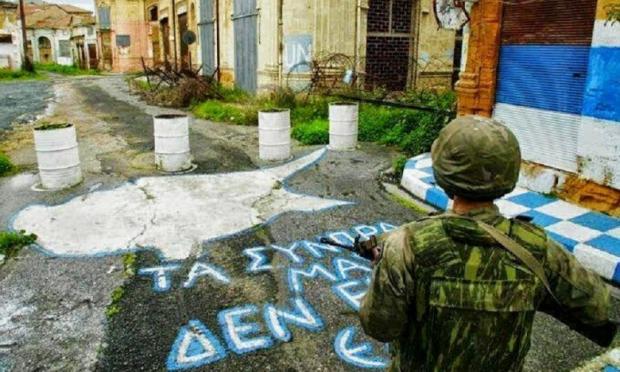Speaking to "Parapolitika", Eddie Zemenidis, executive director of the Hellenic American Leadership Council (HALC), set the terms and conditions under which Turkey can acquire F-16s in the future, as well as the way to resolve the Cyprus.
The head of the Hellenic American Leadership Council will come to Athens at the end of the month to participate in the 8th Delphi Economic Forum, scheduled to take place April 26-29 in Delphi.
Here is the interview:
-In what ways do you think Greece benefits from deepening and strengthening its relations with the United States?
-In terms of security, Greece is safer because of its stronger ties with the US. The growing importance of US investment in Souda, Alexandroupoli, Larissa and elsewhere not only increases Greece's capabilities, but makes its security a matter of direct US interest. Greece also benefits because the US views it as a key ally and partner both in the Eastern Mediterranean and in the The US is committed to political stability in Greece and the Balkans. As a result, Greece has increased its influence in both regions and in some cases is the "mediator" between Washington and actors in them. We see this especially in the area of energy diplomacy. Finally, there are financial benefits. The US is committed to political stability in Greece and strengthening its Western orientation. Washington has certainly learned from the mistakes Greece's creditors made over the past decade, which paved the way for Chinese and Russian investment. Now the US is pushing for more Western investment in Greece and is offering both positive messages and some incentive programs to encourage such investment.
-How do you see the Greek government's effort to build stronger alliances and deepen ties with Israel, Egypt and other countries in the Eastern Mediterranean region?
- These efforts - by many governments - have transformed the geopolitical role of Greece and will one day be recorded in Greek History as being as important as any foreign policy initiative undertaken by modern Greece. Like the first institutions of the European Union, the Eastern Mediterranean has started to come closer because of one source of energy, natural gas - coal and steel in the case of Europe. The size of the partnerships and institutions that are developing in and around the Eastern Mediterranean is admirable and Greece is at the center of all of them. Greece is leading a historical development.
- Are you concerned about the behavior and actions of the Erdogan government towards Greece and Cyprus over the past year? What should be done next, in your opinion? After the devastating earthquakes, there is a glimmer of diplomatic hope for Greek-Turkish relations.
-I am worried - and not only about the actions of the past year. The attempt to undermine and challenge the national sovereignty of Greece and Cyprus is a long-standing policy of Ankara, which unfortunately extends beyond Erdogan. Let us not forget that the "Blue Homeland" doctrine was not an invention of Erdogan and the AKP. The post-earthquake de-escalation in Turkey is welcome and opens up the possibility of diplomatic openings, but Erdogan's top adviser, Ibrahim Kalin, was recently in Washington telling anyone he The post-earthquake de-escalation in Turkey is welcome and gives the possibility for diplomatic openings heard that the issues between Greece and Turkey remain. Going forward, the only way forward is for Washington and Brussels to make it clear that Turkey's aggression, open challenges to Greek sovereignty and threats of war are completely unacceptable, and that if Turkey wants any of its concerns to be taken seriously , then these tactics must be off the table - and the casus belli vis-à-vis Greece must be revoked, and Ankara's insistence on two states in Cyprus must also be overturned. Without them, there can be no reasonable prospect of constructive negotiations on any issue.
-Will the sale of F-16 fighter jets to Turkey proceed at some point and under what terms and conditions?
- The only way for this sale to proceed is for there to be serious and essential changes in Turkey's policy. Among the policies on which Ankara must make a 180-degree turn are: Approving Sweden's NATO membership, resolving the S400/CAATSA issue, show that these F-16s are not intended to be turned against Greece, stop overflights in the Aegean for a certain period, end formal challenges to Greece's national sovereignty, and withdraw the casus belli.
-You recently visited Nicosia. Almost half a century after the Turkish invasion, the island remains divided. Do you see a prospect of resolving the Cyprus problem?
-There is clearly an opportunity with the new President, Nikos Christodoulidis, the new US ambassador and the diplomatic openings I mentioned earlier. But unless Erdogan and the Turkish Cypriot leader Tatar reverse their flagrant violation of UN Security Council resolutions by opening Varossia and recommit themselves to a solution based on UN resolutions, rather than their insistence on two states, the first step will never be taken.



